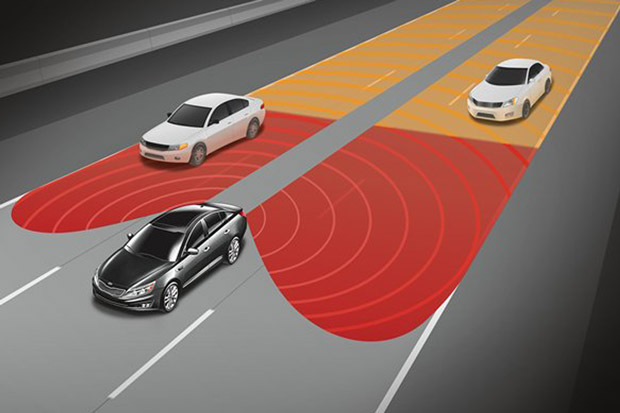18 June 2018
Motorists urged to keep their eyes on the road as driver assistance features become commonplace
Drivers have been urged to keep their eyes on the road and not become over reliant on a wide range of safety-related assistance features now being fitted to an increasing number of vehicles.

The call comes from Thatcham Research, the motor insurers' automotive research centre, and the Association of British Insurers (ABI), which simultaneously called on carmakers and legislators to provide greater clarity around the capability of vehicles sold with technology that does more and more 'driving' on behalf of motorists.
'Assisted' driving features such as adaptive cruise control, lane departure warning, lane keeping assist and blind spot monitoring are becoming ever more commonplace in cars. However, while they help drivers by providing speed and steering support, those behind the wheel remain criminally liable for the safe use of their cars.
However, amid much hype concerning the launch of 'automated' vehicles, which are anticipated to be available from the mid-2020s, in-built systems will enable the car to take full control of speed and steering enabling users to get on with other tasks, such as reading of watching a film. As a result, manufacturers will be liable, and not drivers, in the event of a crash.
In outlining the difference between 'assisted' and 'automated' in-vehicle systems, Thatcham Research and the ABI say that the capability of current road vehicle technologies must not be oversold
The warning comes in the wake of growing reports of people crashing whilst over-relying on technology which is not yet designed to drive the car independently.
Thatcham Research says that the next three years marked a "critical period", as carmakers introduced new systems which appeared to manage more and more of the driving task.
The risks to UK drivers have been outlined in the new 'Assisted and Automated Driving Definition and Assessment' paper, which, published by Thatcham Research, identifies dangerous grey areas associated with some driver support technologies.
They include what Thatcham Research and the ABI call "misleading names", like Autopilot (Tesla) and ProPilot (Nissan), given to systems by carmakers, how and when drivers should take back control of their vehicles and systems which are designed to work in specific situations only (eg on motorways) but can also function anywhere.
Matthew Avery, head of research at Thatcham Research, said: "We are starting to see real-life examples of the hazardous situations that occur when motorists expect the car to drive and function on its own.
"Specifically, where the technology is taking ownership of more and more of the driving task, but the motorist may not be sufficiently aware that they are still required to take back control in problematic circumstances.
"'Fully automated' vehicles that can own the driving task from A to B, with no need for driver involvement whatsoever, won't be available for many years to come. Until then, drivers remain criminally liable for the safe use of their cars and as such, the capability of current road vehicle technologies must not be oversold."
To provide guidance to carmakers and legislators, Thatcham Research has drawn up a list of 10 key criteria that every 'assisted' vehicle must have, complementing 10 criteria laid out in 2017 which a car must meet before it can be called 'automated'.
The recommendations represented, said Mr Avery, best practice to promote safety on the roads as 'assisted' vehicles became ever more commonplace. The recommendations are contained in the 'Assisted and Automated Driving Definition and Assessment' paper, which is available for download here.
Mr Avery said: "It begins with how systems are named and described across carmaker marketing materials and the driver's handbook. Names like Autopilot or ProPilot are deeply unhelpful, as they infer the car can do a lot more than it can. Absolute clarity is needed, to help drivers understand the when and how these technologies are designed to work and that they should always remain engaged in the driving task."
James Dalton, director of general insurance policy at the ABI, said: "Insurers are major supporters of efforts to get 'assisted' and 'autonomous' vehicles onto the UK's roads. Given the part human error plays in the overwhelming majority of accidents, these technologies have the potential to dramatically improve road safety.
"However, we are a long way from 'fully autonomous' cars which will be able to look after all parts of a journey and in the meantime, it remains crucial that all drivers are alert and ready to take back full control at a moment's notice. Manufacturers must be responsible in how they describe and name what their vehicles can do, and the insurance industry is ready to hold them to account on this."


